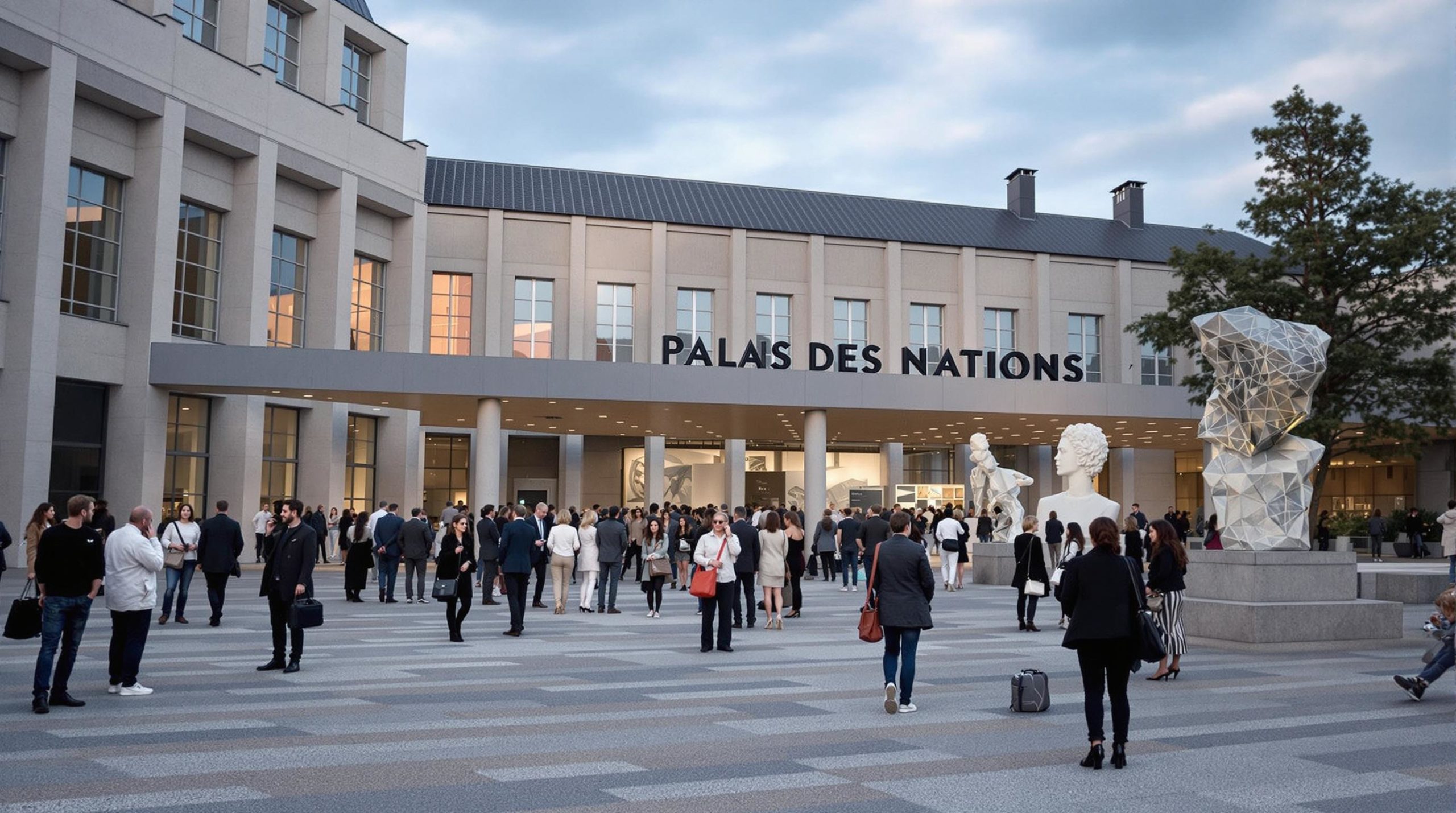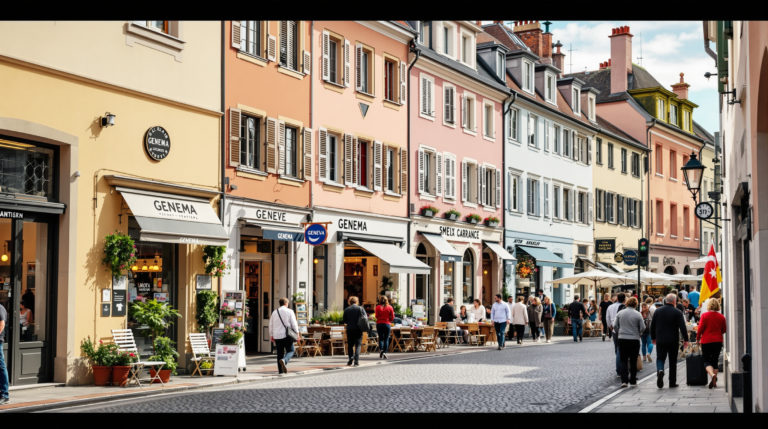Science Wonders: 8 Must-See Museums in Geneva in 2025
Geneva, a global hub renowned for its scientific advancements and cultural richness, offers a treasure trove of museums that showcase the wonders of science. In 2025, science enthusiasts have much to look forward to as the city hosts an array of fascinating museums dedicated to unraveling the mysteries of the universe, technology, and human innovation. Whether you’re a seasoned scientist or a curious traveler, exploring these science museums in Geneva will delight and inspire you. Venture through history, engage with cutting-edge technology, and unlock the secrets of the natural world in this captivating journey.
Summary
• Museum of Natural History
• Microcosm at CERN
• Musée d’Histoire des Sciences
• Patek Philippe Museum
• International Red Cross and Red Crescent Museum
• Geneva Observatory
• International Museum of the Reformation
• Science Pavilion at the United Nations Office at Geneva
1. Museum of Natural History
Located in the heart of Geneva, the Museum of Natural History is a cornerstone for enthusiasts keen on exploring nature and biological diversity. Notably, it houses an impressive collection of over 8,000 specimens, ranging from preserved wildlife to one of the largest displays of life-size dioramas. Visitors are greeted by a towering life-size mammoth replica when they enter, followed by galleries showcasing the evolution of life, plant collections, and marvelous gemstone arrays. The museum is especially famous for its dinosaur skeletons and offers interactive exhibits where science meets education, engaging both adults and children in the processes of natural history.
For those intrigued by geology, the museum’s vast mineral collection is a must-see, facilitating a deeper understanding of Earth’s composition. Attendees can gain insight into how these elements have formed the planet as we know it today. The museum also provides temporary exhibitions that often focus on timely environmental issues, making it not only a repository of history but also a beacon of current scientific discourse.
2. Microcosm at CERN
No visit to Geneva is complete without delving into the world of particle physics at the Microcosm, CERN’s on-site museum. This unique experience provides an unparalleled glimpse into the experiments conducted at the largest particle physics laboratory in the world. Microcosm takes visitors on a journey through CERN’s past discoveries, including the Higgs boson, and explores how these breakthroughs have contributed to our understanding of the universe.
Exhibits are designed to be engaging and interactive, allowing visitors to observe the machinery and technology behind groundbreaking experiments. Enhance your visit by taking a guided tour where experts provide detailed explanations, making complex scientific ideas accessible to all. The tours offer a rare opportunity to visit the actual Large Hadron Collider (LHC) during maintenance periods. Those planning a trip here can access detailed itineraries and travel recommendations using Swiss Lim Co’s private chauffeur services for a seamless visit.
3. Musée d’Histoire des Sciences
Sitting elegantly on the banks of Lake Geneva, the Musée d’Histoire des Sciences provides a historical perspective on Geneva’s scientific progress. The museum is housed in the beautifully preserved Villa Bartholoni and captures the city’s contribution to scientific fields like physics, biology, and astronomy. Its collections include scientific instruments ranging from the 17th to the 19th centuries, offering insights into the evolution of scientific inquiry and experimentation.
The museum’s exhibits not only celebrate the instruments themselves but also the historical figures who used them, such as Horace de Saussure and Marc-Auguste Pictet. The wondrous surroundings of the villa garden also make it a picturesque spot for reflection and inspiration. Special exhibitions often spotlight specific scientific themes, providing depth and variety for repeat visitors. With its blend of history, art, and science, the museum represents an enriching stop easily accessible on a cultural itinerary with a reliable airport transfer.
4. Patek Philippe Museum
While most renowned for its horological marvels, the Patek Philippe Museum in Geneva stands out as a tribute to the blend of science and art found in watchmaking. Housing a remarkable collection of watches dating back to the 16th century, the museum showcases the meticulous craft and technological advancements of watchmaking. Each intricate piece tells a tale of innovation and precision, reflecting the scientific techniques that have evolved over centuries.
The museum not only pays homage to the heritage and artistry behind Patek Philippe watches but also provides a broader understanding of Geneva’s historic role in timekeeping innovations. Visitors can explore extensive exhibits featuring antique watches, swatch collections, and the intricate processes behind their creation. The Patek Philippe Museum exudes an aura of elegance and sophistication and is a must-visit for those interested in the interplay of science and craftsmanship.
5. International Red Cross and Red Crescent Museum
Geneva, being the host city of the world’s oldest international humanitarian organization, offers the International Red Cross and Red Crescent Museum. It’s a crucial space that highlights the application of science in humanitarian efforts. This museum fosters understanding of the medical field advancements that aid humanity and the innovative approaches taken during crises.
Interactive exhibits focus on contemporary global issues people face and how science and technology can offer solutions. With displays that delve into global humanitarian responses to war and poverty, the museum exemplifies how Geneva serves as a catalyst for scientific advancements toward improving human conditions. Consider utilizing Swiss Lim Co’s Geneva chauffeur service for a comfortable and timely visit.
6. Geneva Observatory
The Geneva Observatory stands as a beacon of astronomical science, showcasing the scientific discoveries and instruments pivotal in unraveling the cosmos’s mysteries. Located on the city’s outskirts, it provides an exciting exploration of celestial phenomena and raises awareness about the contributions of Swiss astronomers to the global science community. The Observatory is open to the public and promotes understanding through guided tours and access to its telescopes.
The Observatory’s planetarium is a star attraction, offering digitally-enhanced presentations that transport participants to far reaches of the universe. Astronomy enthusiasts will find joy in the special events hosted here, such as celestial observation nights and lectures by renowned scientists. This institution not only spotlights the scientific achievements of the past but also ignites passion and curiosity towards the future of space exploration.
7. International Museum of the Reformation
While not a conventional science museum, the International Museum of the Reformation provides insight into the ripple effects that human-driven changes have had on scientific progression. It spotlights the socio-cultural upheaval of the Reformation and its role in catalyzing scientific inquiry and exploration. The museum offers various artifacts, manuscripts, and interactive documentaries that help visitors understand how shifts in thinking influenced scientific innovation.
The exhibitions skillfully relate the themes of change, progress, and critical thinking, showing the direct link between cultural shifts and scientific developments. Visitors drawn to understanding the broader impacts of cultural and scientific evolution will find this museum’s resources unparalleled, allowing them to appreciate the synergistic flow of history and science.
8. Science Pavilion at the United Nations Office at Geneva
Located within the iconic United Nations Office, the Science Pavilion offers a chance to witness firsthand the intersection of science and global governance. This unique venue highlights scientific perspectives on international issues, showcasing technology’s role in diplomacy, environmental policies, and human rights. It’s an opportunity to grasp how science plays a pivotal role in shaping policies and tackling global challenges.
The pavilion frequently hosts events, exhibitions, and lectures, encouraging discussion and collaboration among scientists, diplomats, and the public. By visiting this pavilion, attendees gain understanding of how scientific knowledge influences and drives policy decisions on the global stage. As the future leans towards science-based solutions, the Science Pavilion is a crucial cultural hub for fostering dialogue and innovation.
Conclusion
Geneva’s museums offer a diverse array of experiences, each shedding light on the various dimensions of science and its impact on our world. From delving into the mysteries of the universe at CERN to appreciating the intricate art of watchmaking, there’s something for everyone. As you plan your visit to these remarkable places, consider the seamless travel options provided by Swiss Lim Co to enhance your journey through Geneva’s scientific treasures.
FAQ
Question: How many science museums are highlighted in this article?
Answer: This article features eight must-see science museums in Geneva.
Question: Can I visit CERN’s Large Hadron Collider at any time?
Answer: Visits to the LHC are possible during maintenance periods. It’s best to check availability in advance.
Question: What can I find at the Museum of Natural History in Geneva?
Answer: The museum features extensive collections of wildlife specimens, geological exhibits, and life-size dioramas.
Question: Are private tours available at the Musée d’Histoire des Sciences?
Answer: Yes, private tours can be arranged to explore the exhibits in detail.
Question: Does the Patek Philippe Museum offer guided tours?
Answer: Yes, guided tours are available to enhance the learning experience about watchmaking’s history and artistry.
Question: What kind of events can I expect at the Geneva Observatory?
Answer: The observatory hosts celestial observation nights, planetarium shows, and lectures for astronomy enthusiasts.
Question: Is the International Red Cross and Red Crescent Museum focused only on history?
Answer: No, it also addresses contemporary humanitarian issues using interactive exhibits and technology.
Question: What role does the Science Pavilion at the UN Office in Geneva play?
Answer: It highlights the application of science in global diplomacy and policy-making through events and exhibitions.
Question: Are all these Geneva museums kid-friendly?
Answer: Yes, many museums like the Museum of Natural History and Microcosm offer kid-friendly exhibits and interactive learning experiences.
Question: How can I conveniently visit multiple museums in one day?
Answer: Consider booking a service from Swiss Lim Co for efficient travel between museums.







